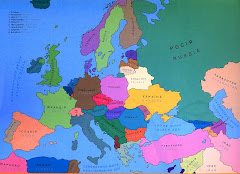
 Surviving in impoverished Egypt:
Surviving in impoverished Egypt:Vendor at a fruit stand; taking tourists closer to the pyramids; collecting trash; a guard at the Luxor Temple.
The guard at the Luxor Temple caught me hiding behind a beautiful hieroglyphic-inscribed papyrus column, crying. I was thinking of my brother Loren, wishing he could be here, sharing his vast knowledge of the history of Egypt, wanting to hear his voice again. The guard asked if I was okay, in halting English; I smiled and said yes, and thanked him. I was embarrassed.
He took me by the hand to another corner of the temple and said this is where he and other Egyptians pray for good health and loved ones. "Put your forehead on this spot," he said, pointing to a well-worn shiny round spot on a marble panel, and pray. It looked a bit like the round lumps on the foreheads of devout men who have prayed five times a day for years and years, only indented. I did what the guard suggested, and I felt better. He held out his hand, and I gave him 5 pounds. He had helped me, and now he asked that I help him. I realized, as much as I disliked the hustling, haggling, and begging, that poverty and survival dictated the behavior as much as anything. If someone found it annoying and reprehensible, well, okay, so be it; the vendor, trader or hustler would just go on to the next tourist, give it a try, and keep going. All day, every day.
One of the things you can't help but notice when walking the streets of Cairo and other towns and cities is how difficult daily life is for the majority of people. They collect trash, plastic and cans for a few pounds. They work as vendors and at day jobs, in hotels, in restaurants, in hospitals, for businesses if they are lucky. They try to get as much money as they can from tourists. It's survival.
Half of Egypt's 80 million people live in poverty. Unemployment is rampant and seemingly intractible. Certainly the Mubarsk government, with its $1.5 BILLION in annual aide from the U.S., never used a penny of it to help the people. Our Egyptian guides sniggered at the huge statues of Mubarak we passed along our way to the temples, and said that's where the money goes, and into Mubarak's pockets. There was an underlying animosity at US foreign policy, but I didn't sense any anti-American sentiment. Egyptians liked Americans, and enjoyed the bartering and the bantering. What they could not abide, and it was beginning to show then, was the persistent daily endless struggle for survival.
That's what American foreign policy has done to the people of Egypt. It has caused untold anquish and suffering, and the people have had it.
Now they have taken their destiny into their own hands, and the status quo governments in Egypt and abroad be damned. Time for a change. The Tunisia effect. "Tunisia is the solution," one news report quoted a protestor as saying.
Journalist Roger Cohen, in a thoughtful NYT opinion piece, interprets the protests as Arabs finding their voice at last, moving "from a culture of victimization to one of self-empowerment." What a difference this could make in the world. That's why Mubarak should just leave, now, so an interim coalition can take over. Why prolong the struggle and the agony? Make way for hope!
Where will all this lead? Who knows. I've heard lots of concerns, lots of fears. But honestly, for the people of Eqypt, it can't be any worse than 30 years of Mubarek's US-supported dictatorship.






























No comments:
Post a Comment